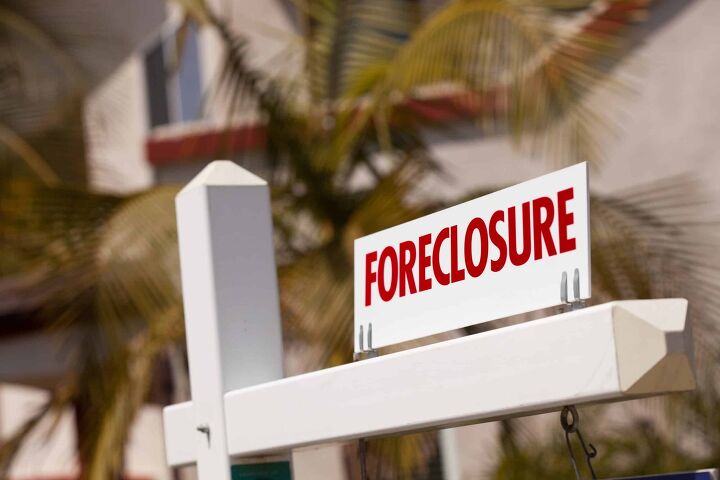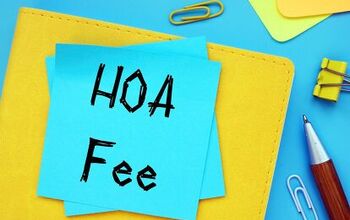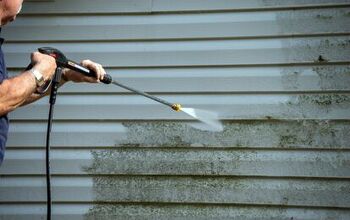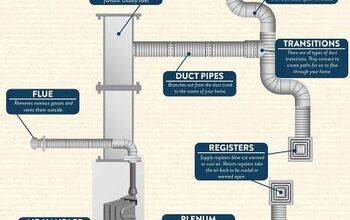How Long Does It Take for HOA To Foreclose?

A homeowner’s association (HOA) can be a great asset when living in a community full of diverse cultures. Although the HOA is not allowed to discriminate against anyone for any reason, they can help keep the neighborhood safe and comfortable. The HOA is an organization in a community that creates and enforces rules for the properties as well as the residents. The members of the HOA are those who live in the community.
Although the laws and procedures vary by state as well as community, HOAs are sometimes allowed to foreclose on a property for issues such as delinquent fees, not paying dues, or not following the rules of the HOA. Timelines for HOA foreclosures also vary but, in most cases, the shortest time is 30 days.
How Does an HOA Foreclosure Work?
State and local laws allow HOAs to recover money owed to them without undue expense and effort, but they must also protect the homeowner from aggressive and unfair procedures by HOAs without the correct procedures and notice. If you have received a lien or threat of eviction from your HOA, you need to review the HOA laws of your state immediately.
For example, in Alabama as well as 34 other states in the U.S. the HOA has to follow specific laws from the Fair Debt Collection Practices Act (FDCPA). The Federal Trade Commission (FTC) is the primary federal agency that is responsible for enforcing the FDCPA.
Most often, the HOA has to successfully put a lien on the homeowner’s home before filing for foreclosure. In all cases, the HOA is required to follow certain steps before beginning any type of legal service. Some of the steps are as follows.
Step One: Meeting with the Homeowner to Resolve the Issues
In almost all states and communities, it is essential that the HOA meets with the homeowner at least once to try and resolve the problems. If the homeowner and the HOA cannot come to a satisfactory resolution, legal action may proceed. If the homeowner does not respond or fails to meet with the HOA, a written notice or warning has to be sent by registered mail.
Step Two: Sending Written Notices to the Homeowner Within the Past 30 Days
If the meeting with the homeowner fails or the HOA gets no response, a registered letter must be sent to the homeowner. The letter would likely need to be some type of warning. For example, the HOA may send a registered letter to the homeowner to show up for a meeting within the next 30 days. The letter must state that if they do not respond that legal action will be taken.
Step Three: Proceeding with Legal Action Like Liens or Small Claims Court
Although it depends on the laws of the state and community, most HOAs are only allowed to file a suit if the homeowner owes a certain amount. For instance, in California, a lien can only be taken against a homeowner if they owe more than $1,800 or their debt is more than 12 months old while other states have a minimum of $1,000.
The Process of Legal Action
If a homeowner in any of these states does not pay their HOA fees when they are due, the HOA has a contractual obligation to collect the debt. However, they must follow all of the state and federal laws. The specific steps typically include:
The HOA will usually start by sending a reminder letter to the homeowner within about 30 days of the late payment. Many times, the homeowner may have forgotten or overlooked this debt and just needs to be reminded once before paying their fees.
If the homeowner does not respond within 30 days of the late notice, the HOA will send a formal collection letter. The letter must follow the FDCPA laws and inform the homeowner that the letter is an attempt to collect a debt. They must also tell the homeowner that if they do not respond that the HOA will then have a legal right to pursue collection actions.
After the initial collection letter, the HOA may choose to send several more letters to prevent taking legal action. These letters should note that if the homeowner does not respond that legal action will be taken. The HOA should specify the legal action they will take if the homeowner does not respond. For example, they should let the homeowner know that they can legally place a lien on their home or even move on to foreclosure.
When the homeowner still does not respond, the HOA has no choice but to file a lien or foreclosure to recoup the debt. Although some HOAs will continue to try to work with the homeowner in some cases, most HOAs have a limit of 60 to 90 days.
What is a Lien?
A lien is a legal right or claim against a person’s home or other assets to satisfy a legal debt. It can only be established by a legal judgment in the case that the homeowner legally owes a certain amount of money. In some states, an HOA can get a lien against a homeowner within 15 days but most have a limit of at least 30 to 60 days of written notice.
If a lien is approved against a debt you owe to the HOA, they may be able to foreclose on your home after a certain amount of days and steps taken. In most states, you will be given a certain amount of days to try to resolve the debt or the HOA will be allowed to proceed with a foreclosure.
How Can I Stop an HOA Foreclosure?
In many cases, all it takes to stop the HOA from filing for foreclosure is by responding to the HOA letters. Just by offering to pay some kind of payment plan or explaining why you are unable to pay the debt, you may be able to stop the process. However, if the foreclosure has already been started, you are limited to just a few choices, which include:
- Filing for bankruptcy
- Starting an agreed-upon repayment plan
- Settling the debt for a smaller amount
- Paying the full amount that you owe
- Hiring an attorney to fight the foreclosure
Filing for Bankruptcy
Although it’s a temporary solution, you can halt an HOA foreclosure by filing for bankruptcy. Once you finish filing, an “automatic stay” immediately goes into effect. This means that the HOA (or anyone else) cannot move forward with foreclosing on your property, or collecting a debt you owe.
Filing for bankruptcy only offers temporary relief since the HOA can ask the court to lift the automatic stay order. If the court agrees to lift it, then the HOA can continue with the foreclosure.
Repayment Plan
If your HOA isn’t willing to consider a lower payoff amount or you can’t simply pay the full amount you owe, they may agree to a repayment plan. With a repayment plan, the homeowner must pay a portion of the past-due assessments along with the general monthly payment over an established period of time.
For example, consider that you are three months behind on your HOA dues of $400 a month, or $1,200 overdue in total. The HOA may agree to let you pay an extra $200 each month for the next six months to help you get current. This would mean that you’d have to pay $600 a month for the six months. Once the repayment period ends, you’ll drop down to paying the regular HOA amount.
Settling for a Smaller Amount
In some cases, you may be able to persuade your HOA to let you pay a lesser amount to settle the debt. Unfortunately, this isn’t always successful as most HOAs simply don’t want to take less than they are owed. However, it doesn’t hurt to ask if they will consider the offer.
Paying the Full Amount
The simplest and most fool-proof way to stop your HOA from foreclosing on your home is to pay all of the overdue assessments in one lump-sum, including any late fees, interest, attorneys’ fees, and additional costs. However, in practice, this option isn’t always possible for homeowners who are significantly behind on payments due to financial reasons.
What Are Some of My Defenses?
If you have a foreclosure or lien against your home due to a debt to your HOA, there are some defenses that can help you get out of trouble. Although not having the money to pay is typically the reason for the non-payment of a debt, there are other reasons that you may not be paying that can stop the legal action against you. Some of these are:
- Lack of proper notice
- Improper standing
- Discrimination or unfair practices by the HOA
- Debt dispute
Of course, there are other conditions that may apply and issues that may help you get out of your HOA foreclosure. But the best way to prevent HOA foreclosure if you cannot pay your dues is to talk to the HOA committee. In most cases, they will work with you to prevent any kind of legal action.

I am a DIYer who loves writing about anything home-related. When I am not writing, you can find me studying for my PhD in Psychology, photographing nature, and swimming at the lake with my grandkids.
More by Patricia Oelze

























![12 Washing Machine Brands to Avoid [with Recall Data]](https://cdn-fastly.upgradedhome.com/media/2023/07/31/9075781/12-washing-machine-brands-to-avoid-with-recall-data.jpg?size=350x220)

